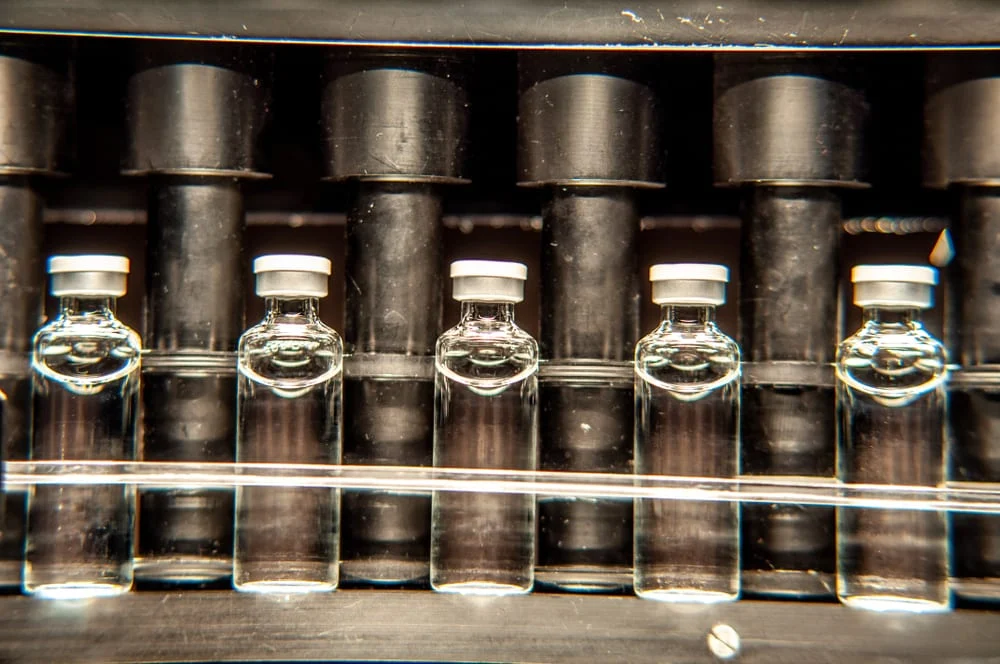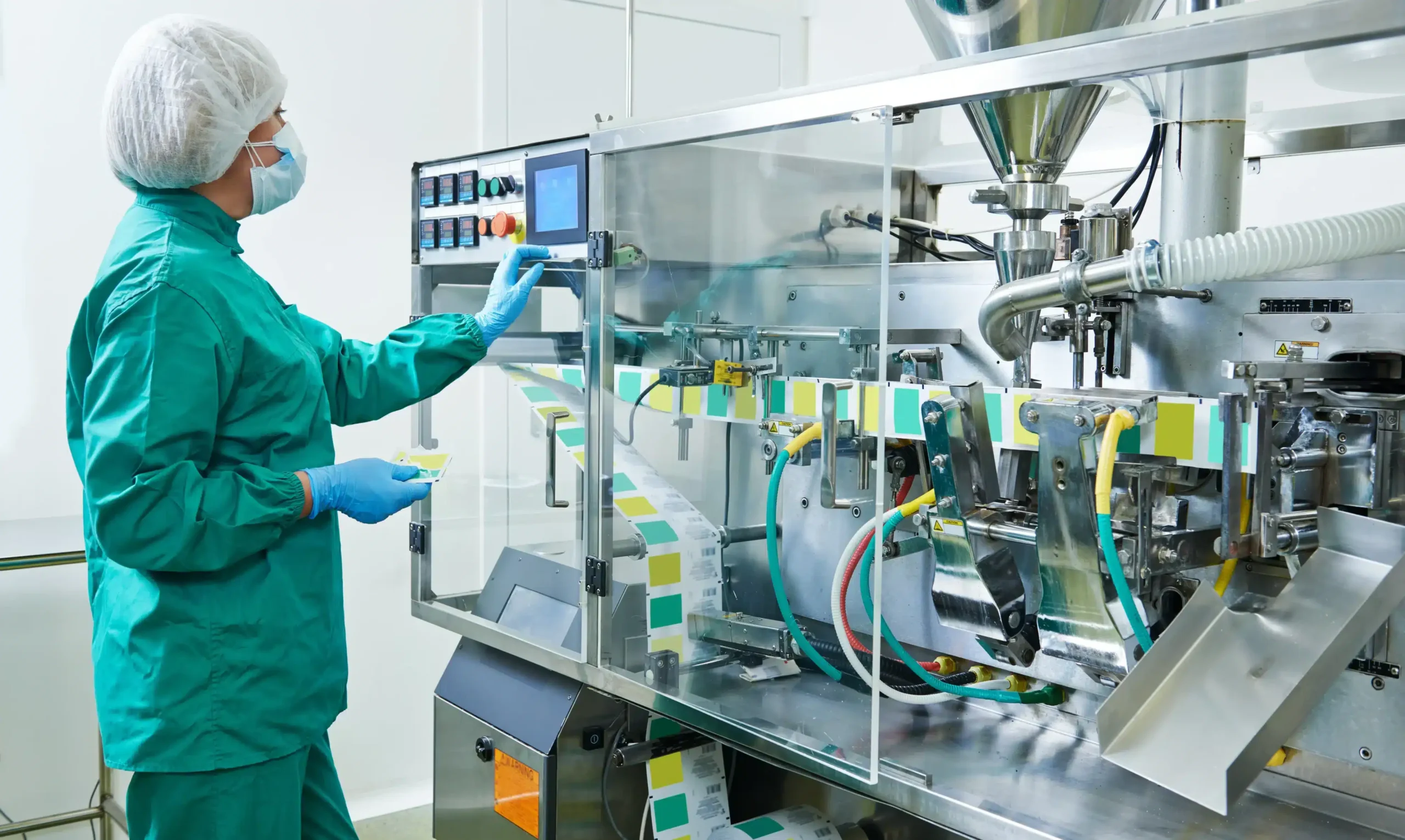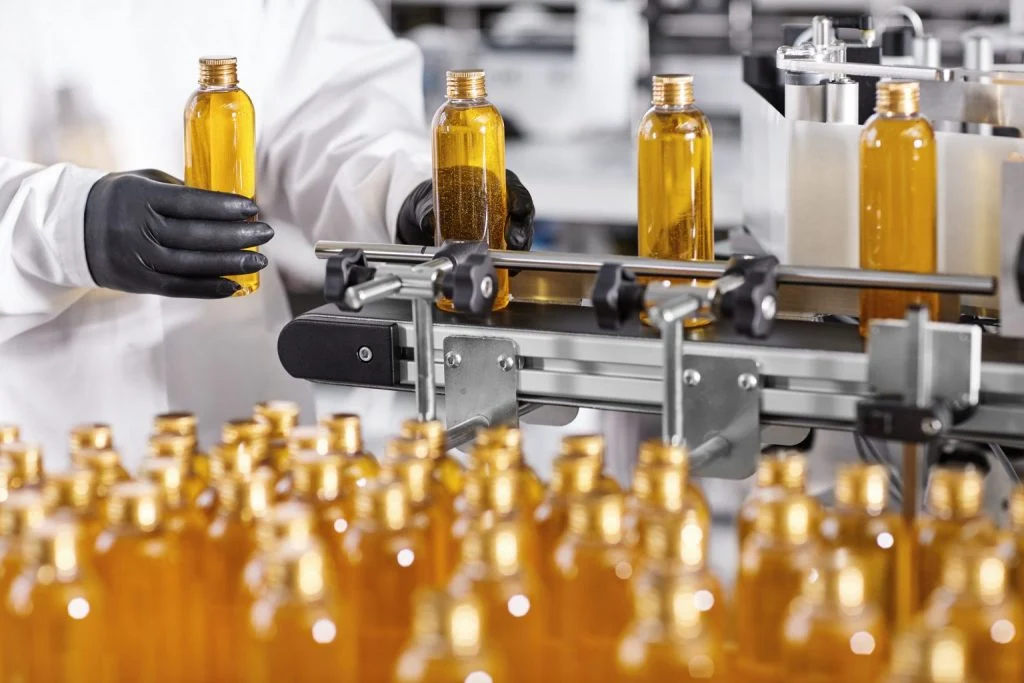あなたは、ビタミン帝国を築く準備ができている。他のブランドが繁栄しているのを見て、自分には特別なものを作るのに必要なものがあるとわかっている。しかし、何から始めればいいのでしょうか?特に競争の激しいウェルネス分野で新製品を発売するのは、最初の一歩が分からず、山の麓に立っているような気分になるものです。
私はその経験がある。そして、それは大きな飛躍というよりも、意図的で戦略的な一連のステップだと言える。このガイドは、私が持っていたかった地図です。アイデアの閃きから、完成したボトルが顧客の手に渡るまでの全行程を一緒に歩んでいきましょう。これは、成功するためのAtoZガイドです。 プライベートブランド液体ビタミン ブランドである。
リキッドゴールドラッシュ:リキッドビタミンが黄金のチャンスである理由
錠剤は過去のものになりつつあるのだろうか?多くの消費者にとって、その答えは「イエス」である。液体サプリメントの需要は急増しており、それは単なる一時的なトレンドではない。この変化は、経験豊富な起業家にとって絶好のチャンスをもたらす。
核となるアドバンテージはこの一言に尽きる: バイオアベイラビリティ.考えてみてほしい。錠剤やカプセルは、栄養素が吸収される前に消化器官で分解されなければならない。その過程でかなりの部分が失われる可能性があります。しかし、液体ビタミンは、この多くをバイパスし、優れた吸収を提供し、より効率的にメリットを提供します。
しかし、その魅力はもっと深い:
- 使いやすさ: 錠剤を飲み込めない子どもから消化器系に過敏症のある高齢者まで、何百万人もの人々にとって、液体は画期的なものだ。リキッドはシンプルで、より快適な毎日の儀式なのだ。
- カスタマイズ可能な投与: 固定用量のカプセルとは異なり、液剤は正確で柔軟な投与が可能です。これは、特定の健康上のニーズを持つ顧客や、成長期の子供の服用量を調整する親にとって、強力なセールスポイントとなる。
- 成長市場: 市場データは一貫して、消費者が錠剤ではない形態にシフトしていることを示しています。リキッド・ビタミンを選択することは、単に製品を販売することではなく、市場の方向性に対応することなのです。これこそが、将来性のあるブランドを構築する方法なのです。

プライベートブランド vs. ホワイトレーベル vs. カスタム製造:進むべき道の選択
専門用語は、メーカーとの関係やコントロールの度合いを決定するため、理解することが非常に重要です。これらの用語を理解することは、メーカーとあなたの関係や、あなたがコントロールできるレベルを定義するため、非常に重要です。
- プライベート・レーベル: これはほとんどの新ブランドにとってスイートスポットである。A プライベート・ラベル・ビタミン・メーカー は、すでに厳格なテストを経た、実績のある調合済みベース製品を提供します。そして、独自のブランド名、ロゴ、パッケージを付けることができます。莫大な研究開発費をかけずに、市場投入のスピードとブランドの所有権を完璧に融合させることができるのです。ユニークな製品を あなたの ブランドである。
- ホワイトレーベル: これは一段と単純だ。メーカーは、完全に完成した既製品(ボトル、ラベル、すべて)を持っている。あなたは単にその製品を購入し、再販するだけです。販売を始めるには最も手っ取り早い方法だが、差別化はまったくできない。あなたの製品は、同じメーカーから買う他の誰とも同じになる。
- カスタム製造: これは最も手間と費用がかかる方法だ。製造業者と協力し、ゼロから完全にユニークな処方を作る。究極の差別化を提供しますが、研究、開発、テストに多額の投資を必要とし、最低発注量(MOQ)もかなり高くなります。これは通常、資金力のある確立されたブランド向けである。
新しい起業家の95%のために、 プライベートブランド は、管理可能な先行投資でユニークなブランド・アイデンティティを構築するための最も戦略的な選択である。
あなたのロードマップビタミンラインを立ち上げるための7ステップの旅
ここでは、あなたのアイデアを夢から具体的な製品にするためのステップ・バイ・ステップのプロセスを紹介する。
ステップ1:ニッチダウンと独自の売り(USP)の定義
最初の直感は、"万人向けのマルチビタミン "を作ろうとするかもしれない。その衝動に負けてはいけない。最も成功しているブランドは、具体的である。すべての人」ではなく、誰があなたの 誰か?
あなたが誰を助けることに情熱を注いでいるか考えてみてください。それは
- エネルギー補給が必要な忙しいお母さん?
- より早い回復を求めるアスリート?
- ビーガンが信頼できるB12摂取源をお探しですか?
- 認知の健康と精神の明晰さに焦点を当てた人々?
あなたのニッチは、あなたの製品、マーケティング、そしてブランド・アイデンティティ全体を定義する。ニッチを知れば 誰 あなたのUSPは明確になります。それは質問に対する答えである:「なぜ、顧客は他のどの製品よりも私の製品を選ぶべきなのか?
ステップ2:予算と費用の把握
多くの起業家がここで行き詰まる。重要なのは プライベートブランド・ビタミンのコストは? 答えはパートナーやあなたの選択次第だが、以下はその内訳だ:
- 1台あたりのコスト: 各ボトルの価格。
- 最小注文数量(MOQ): メーカーが受け入れる最小の注文。を見つける 低MOQサプリメントメーカー 初期の現金支出を劇的に減らすことができるためだ。
- パッケージング: ボトル、キャップ、スポイト、箱代。
- ラベルデザインと印刷: デザイナーを雇うにせよ、メーカーのサービスを利用するにせよ。
- 配送とフルフィルメント: 工場からお客様またはお客様の倉庫に製品を輸送するための費用。
びっくりするような料金を避けるため、常に詳細な包括的見積もりを依頼すること。

ステップ3:適切な製造パートナーを見つける(最も重要な決断)
これは、あなたにとって最も重要な決断です。メーカーは単なるサプライヤーではなく、あなたのブランドの品質と評判の基盤なのです。単に「液体サプリメントメーカー」を探すのではなく、パートナーを探しましょう。このガイドの後半で、どのようにパートナーを吟味するかについて詳しく説明します。
ステップ4:調合と風味付け - 愛される製品を作る
プライベートブランド・モデルでは、ベースとなる配合はすでに開発されている。あなたの創造的な意見が、味付けや微調整に反映されます。素晴らしい味の製品は譲れません。ひどい味の素晴らしいサプリメントでは、リピーターはつきません。フル生産に踏み切る前に、必ず味見用のサンプルを要求しましょう。
ステップ5:棚から飛び出すブランディングとパッケージング
ブランドとは、製品の背後にあるストーリーであり、感情である。パッケージはそのストーリーの第一章です。プロフェッショナルであり、ブランドの価値観(ミニマリスト、活気、臨床的など)を反映し、製品の利点を明確に伝える必要があります。高品質なデザインに投資することで、すぐに信頼を築くことができます。
ステップ6:迷路のようなFDA規制とラベル表示をナビゲートする
これは譲れない重要なステップです。FDAはサプリメントのラベルに厳しいガイドラインを設けています。ラベルには、全成分、用法用量が正確に記載され、特定の免責事項が含まれていなければなりません。ここでは、信頼できる製造業者があなたのガイドとなります。彼らはサービスの一環として、あなたのラベルが準拠しているかどうかを確認する必要があります。これを誤ると、深刻な法的トラブルにつながる可能性があります。
ステップ7:Go-To-Market:立ち上げとマーケティング戦略
あなたは素晴らしい製品を持っている。さて、人々はどうやってそれを見つけるのでしょうか?発売戦略は、数ヶ月前から計画する必要があります。販売方法は?
- 独自のeコマースサイト(Shopifyなど)をお持ちですか?
- アマゾン?
- インフルエンサーや医療従事者とのパートナーシップを通じて?
商品が入荷する前に、宣伝効果を高めましょう。ブランドストーリーや製品の利点を共有し、ウェイティングリストを作成して早い段階から関心を集めましょう。
100万ドルの質問プライベートブランド・サプリメントの販売は儲かるのか?
単刀直入に言おう:そう、それは驚くほど儲かる。しかし、一攫千金を狙うものではありません。サプリメントの利益率は一般的に健全で、価格設定や単価にもよりますが、50%から70%かそれ以上になることがよくあります。
あなたの成功は、顧客ロイヤルティを獲得できるブランドを構築できるかどうかにかかっている。本当の収益性は最初の販売から生まれるのではなく、2回目、3回目、10回目から生まれるのです。本当の成果をもたらす高品質の製品を作れば、継続的な収益の流れが生まれます。最初の利益だけでなく、顧客生涯価値(LTV)に焦点を当てよう。
メーカーの審査方法:成功のためのチェックリスト
適切なパートナーを選ぶのは大変なことです。このチェックリストを使って、優れたパートナーと凡庸なパートナーを分けましょう。
必須資格(譲れないもの)
これらがないメーカーは、その場から立ち去りましょう。
- GMP(適正製造規範)認証: これがゴールド・スタンダードである。これは、製品が品質基準に従って一貫して生産・管理されることを保証する品質管理システムである。
- FDA登録施設: これは、その施設が食品医薬品局(FDA)に登録され、査察の対象となっていることを意味する。
調達、テスト、透明性について尋ねるべき質問
良いパートナーはこうした質問を歓迎してくれる。
- 「原材料の調達先を教えてください。(透明性と品質へのこだわりを確認する)。
- 「製品の純度や効能について、どのような第三者検査を行っていますか?
- "品質管理プロセスを最初から最後まで説明してもらえますか?"
- 「ラベルコンプライアンスを支援する社内チームがありますか?
- "制作中のコミュニケーション・プロセスはどのようなものですか?"(一般的なメールアドレスではなく、専任のアカウントマネージャーが必要です)
注意すべきレッドフラッグ
- 質問に対する曖昧な答え。
- 証明書類の提出を嫌がること。
- サンプルがなかったり、法外な値段を請求されたりする。
- 高圧的な販売戦術。
- プロらしくない、あるいは詳細な情報が欠けているウェブサイト。
CHTNature:繁栄するサプリメントブランド構築のパートナー
私たちは、ブランドの立ち上げが単なる製品以上のものであることを知っています。それは夢です。CHTNatureは、あなたのような起業家が夢を現実に変えるお手伝いをすることを中心に事業を展開しています。私たちは単なる 液体ビタミンメーカー私たちはあなたの戦略的パートナーです。
- 低リスクで始めるための低MOQ: 私たちもかつては新興企業でした。最も競争力のある 低いMOQ 私たちは、誰もが資金をかけずにブランドを立ち上げるチャンスを得るに値すると信じているからです。
- 処方からフルフィルメントまでのターンキーサービス: 私たちは、パーフェクトな選択から、すべてのステップをご案内します。 カスタム・リキッド・ビタミン 処方や香料から、ラベルがFDAに準拠していることを確認することまで。
- 品質とお客様の成功へのコミットメント: アメリカのGMP認定、FDA登録施設は、私たちの品質へのこだわりの証です。お客様の成功が私たちの成功であり、私たちは最初のご注文の後もずっとお客様をサポートいたします。

よくある質問(FAQ)
液体ビタミンの一般的な最小発注量(MOQ)はいくらですか?
これは大きく異なる。5,000個以上を要求するメーカーもある。しかし、新興企業に特化したパートナー(当社のような)は、100~500個という低いMOQを提供することができます。
アイデアから完成品までの全工程にはどれくらいの時間がかかりますか?
平均して、製造業者を決めてから8~12週間かかると予想されます。これには、処方の最終決定、ラベルデザイン、製造、テストが含まれます。
材料や配合は自分で用意できますか?
独自の原材料を提供したい場合は、「カスタム製造」の領域へと移行することになり、コストと複雑さの構造が異なる。プライベートブランドの場合、通常はメーカーが吟味した原材料を使用する。
どのような検査と品質管理が行われているか?
評判の良いメーカーは、第三者機関によるラボテストを実施し、最終製品の純度(汚染物質が含まれていないこと)と効能(成分がラベルに記載されているものと一致していること)を確認する必要があります。
ラベルデザインやFDAコンプライアンスに対応していますか?
フルサービスのパートナーは、デザインサービス(またはテンプレート)と、ラベルがすべての法的要件を満たしていることを確認するための徹底的なコンプライアンスチェックの両方を提供する必要があります。
ブランド構築の準備は整いましたか?これが次のステップです。
千里の道も一歩から。あなたは調査を終え、地図を手に入れた。次の一手は行動を起こすことだ。
もし可能性を模索する準備ができているなら、話しましょう。私たちのチームにご連絡いただければ、無料でご相談に応じます。あなたのブランド・ビジョンについて話し合い、具体的な質問にお答えし、透明性のあるお見積もりをお出しします。あなたのブランドの未来が待っています。



